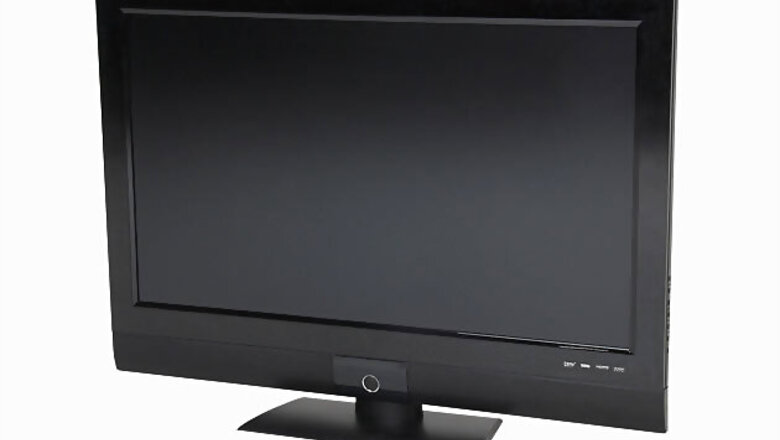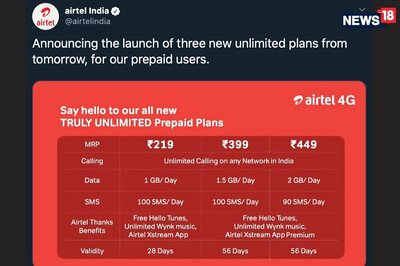
views
New Delhi: Television viewers will soon get to choose a minimum of hundred Free to Air (FTA) channels at a maximum retail price of Rs 100, as per new tariff rules for Cable TV announced by Telecom Regulatory Authority of India (TRAI) on Monday.
According to the regulatory framework for Digitalised Cable TV brought out by TRAI to safeguard consumers' interests, cable operators will have to mandatorily offer a Basic Service Tier (BST) to viewers throughout the country.
The Basic Service Tier would consist of 100 Free to Air channels including 18 mandatory Doordarshan channels plus the Lok Sabha channel.
The TRAI tariff order lays down that apart from the mandatory channels in the BST, cable operators and Multi System Operators (MSOs) will have to provide customers a minimum of five channels of different genres.
The genres which TRAI has named are General Entertainment Channels(GEC) in English, GEC- Hindi, GEC - Regional, Music, News, Movies, Sports, Kids Infotainment, lifestyle.
"The BST shall be mandatorily offered by the cable operator. However it will be optional for the consumer to subscribe," TRAI said in its tariff order.
Customers can also choose another option which includes some pay channels and pay a monthly price upto Rs 150, the TRAI rules state.
"If the total value of the channels/ bouquets opted by the subscriber exceeds Rs 150, only then actual subscription charges has to be paid," a press release issued by TRAI said.
These rules will come into force along with the Digitalisation of the cable sector for which the government has already set up a deadline of June 30, 2012 in four metros and December 2014 for the entire country.
TRAI's latest tariff order has also laid down rules on the basis of which channels and bouquets will be priced.
The rules have been brought out by TRAI to ensure that popular channels are not overpriced and consumers don't have to choose bouquets which include unwanted channels.
As per the rules laid in TRAI's order, the sum of the a-la-carte rates of channels in a bouquet should not be more than 1.5 times the rate of the bouquet.
Moreover the a-la-carte rates should not exceed 3 times the average channel rate of each bouquet, the TRAI rules lay down.
TRAI has also laid down that all channels whether pay or FTA should be offered on a-la-carte basis to individual channels. In a release, TRAI said that it also expected MSOs to increase their channel carrying capacity.
"The Authority has mandated MSOs to carry a minimum of 500 channels from January 1, 2013. However, keeping in view that smaller MSOs having less than 25000 subscribers may need some additional time for building capacity, they have been given time up to April 1, 2013," TRAI said in a press release.
TRAI, however, has prescribed that every MSO should have a minimum capacity to carry 200 channels by July 1, 2012.
TRAI has in its latest tariff ordered also addressed the issue relating to the Carriage Fee.
"Keeping in view the fact that substantial investment for implementation of Digital Addressable Cable TV Systems is made by the MSO and the cost involved in carriage of channels, the Authority has decided that every MSO may fix the Carriage Fee," TRAI said.
It, however, said that it would would intervene in case it is felt that the Carriage Fee is unreasonable. Carriage fee is the amount that channels pay MSOs to get access to viewers.
As per the new rules, Broadcasters would enjoy must carry provision which means that they can get the MSOs to take their channel to the viewer if they pay the carriage fee, published by the channel.
TRAI has also established guidelines for revenue sharing between Multi System Operators (MSOs) and Local Cable Operators (LCOs).
"The Authority has now prescribed that in case the mutual negotiations fail, the revenue share shall be in the ratio of 55:45 (MSO:LCO) for BST or FTA channels," TRAI said in its statement.
"The revenue share for Pay channels or bouquet of Pay channels with or without FTA channels shall be in the ratio of 65:35 (MSO: LCO)," the statement added.


















Comments
0 comment